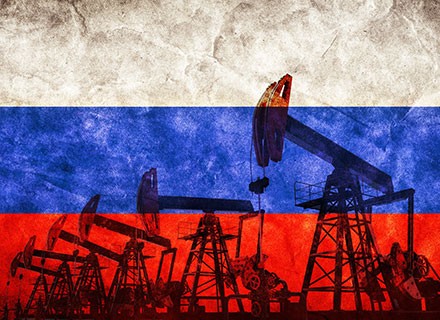The Group of 7 and its allies have shelved regular reviews of the Russian oil price cap scheme, as per a Reuters report, even though most Russian crude was trading above the limit because of a rally in global prices.
Russian oil producers have found ways to sell their product, while using fewer Western ships and insurance services, thus making it difficult for the West to enforce the existing price cap because the companies facilitating the trade were outside of their remit.
The G7 countries along with the European Union and Australia imposed the price cap mechanism on Russian oil in December 2022, followed by a cap on fuel from February 2023, to punish Moscow financially for its Ukraine adventure.
Initially, European Union countries agreed to review the price cap every two months and to adjust it if necessary while the G7 would review the measure “as appropriate” including “implementation and adherence.”
The G7 has not reviewed the cap since March 2023, as per the reports and four people familiar with the intergovernmental political forum’s policies, told Reuters that the group had no immediate plans to look into adjusting the scheme.
“There were some talks in June or July to do a review, or at least talk about it, but it never formally happened,” one diplomatic source said, while adding that some European countries were keen for a review of the price cap. Also, on the other hand, there is “little appetite” from the United States and G7 members to make changes in the particular policy.
The mechanism currently allows third countries to buy Russian fuel using Western ship insurance if there is proof that the purchase does not exceed price limits of USD 60 per barrel for crude, USD 45 per barrel of heavy fuel and USD 100 per barrel of light fuel.
Benchmark Brent oil futures have been trading at their highest in 2023 at above USD 90 a barrel, raising the value of global crude, including Russian Urals. Russia’s finance ministry has already said that the average price of its flagship crude grade Urals recovered to USD 74 a barrel on average in August 2023, well above the USD 60 a barrel cap, and up from an average of USD 56 in the first six months of the year.
Russia was forced to cut exports of oil (one of its revenue generation sources) immediately after the price cap was imposed as Moscow struggled to find enough ships to transport all of its output. However, the country eventually channelled most of its exports into the hands of domestic or non-Western foreign shippers, which do not require Western insurance coverage.
“At least 40 middlemen, including companies with no prior record of involvement in the business, handled at least half of Russia’s overall crude and refined products exports between March and June. While mostly ‘dark fleet’ of tankers with murky ownership was being now used to transport Russian crude, Western ships were still involved in moving products since those were harder to police, an industry source said,” commented the Reuters report.
According to the London Stock Exchange Group’s data, Russian crude has been trading above the cap since mid-July and is being traded at around USD 67 a barrel at Russian crude terminals. Russian refined products like fuel oil and diesel also surpassed their price caps.
Meanwhile, the crude oil price scaled to new heights during the first week of September as traders and hedgers weighed production cuts and a continuing run down of existing stockpiles.
Saudi Arabia and Russia have already committed to maintain their production cuts through to the 2023 end, thereby giving way to a potential supply squeeze which is pushing the prices higher.

